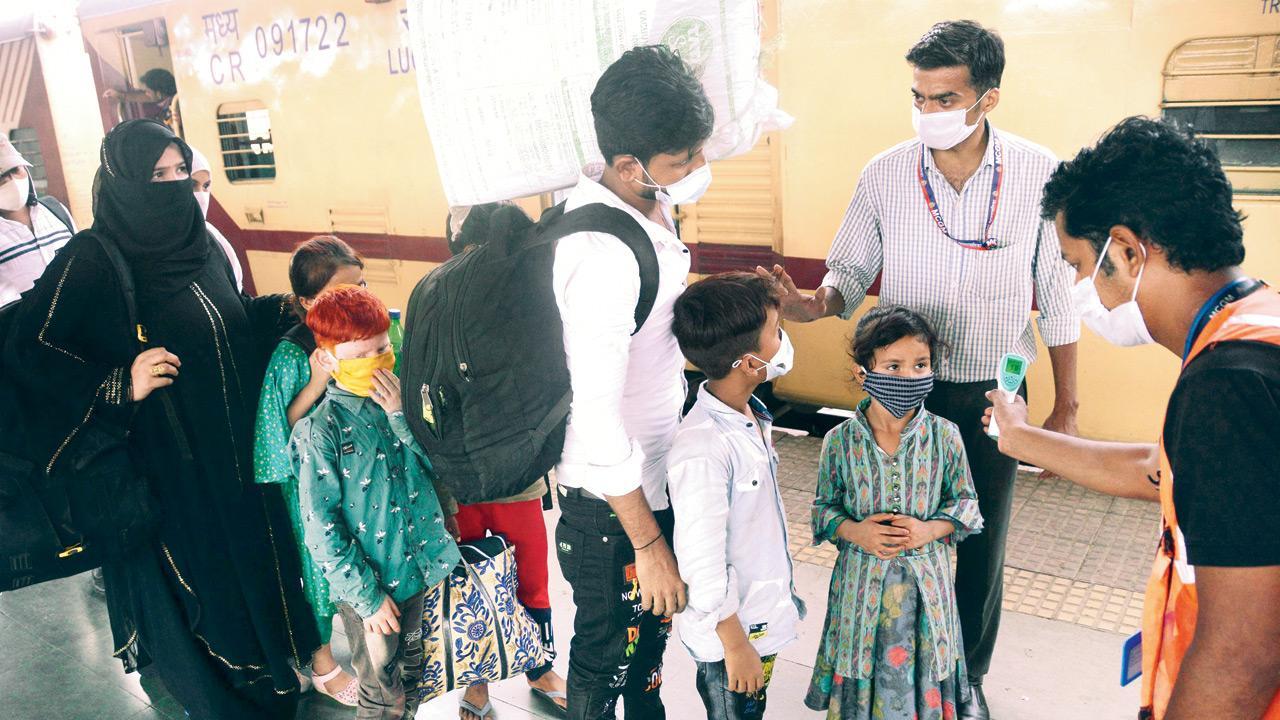We waste time on conflicts created by adults, inadvertently neglecting the most vulnerable people in our lives

How do we, who turn on strangers at the slightest hint of any perceived slight towards our offspring, swallow our parental pride and accept the disgraceful manner in which the government treats children? Pic/Sayyed Sameer Abedi
I decided to look at topics that dominated our national discourse over the past year, not because I enjoy reliving moments of anxiety but because I wanted to try and gauge how we direct our attention. I wanted to get a sense of what occupies us, more during a time of crisis than when things appear to have a semblance of normalcy. I noticed, unsurprisingly, that most of our conversations centred around the Covid-19 vaccine: when scientists would discover one, how long it would take to produce, when it would arrive, and when our parents or grandparents would be eligible for a first shot.
ADVERTISEMENT
There was almost nothing said about how children across India were faring during the pandemic. A couple of news features in weekend supplements involved psychologists pointing out the effects of forced isolation, while news reports restricted comments to when examinations were being held or when schools were scheduled to open. I was looking specifically for information from the government, about how it viewed the health of children and what it intended to do for their well-being and future in a post-pandemic world. And I found nothing.
We have departments and ministers with portfolios supposedly dedicated to the health of children across the country. When was the last time you received any information from these representatives? Was there an SMS or email, a note about anything being done to monitor how children were doing? It made me wonder why these departments existed, why taxpayer funds had been diverted to them, and why we had absolutely no idea how they deployed the resources at their disposal.
Every country rose to the challenge posed by the pandemic differently. Several governments issued guidelines on how everyday preventive actions could be taught and reinforced. Some issued reminders about scheduled healthcare visits to avoid the missing of important vaccinations. There were concerted efforts to focus on the possibilities of physical activity in isolation, and how parks or play areas could be sanitised or made safe enough for children to spend time in them. Many governments also diverted funds to focus on the importance of staying socially connected.
Looking at this wealth of information floating around everywhere, I was struck by India’s silence. There wasn’t even the pretence of activity from our otherwise PR-obsessed government machinery.
It’s easy to wash our hands of this nonchalance by bringing up that catch-all excuse of poverty. We know India can’t afford the kind of money that First World countries take for granted, when it comes to making sure children have access to technology and healthcare. We know we are light years behind when it comes to paying attention to mental health for adults, let alone children. We accept that the well-being of children during a pandemic is far down a list of priorities in a country that has yet to tackle malnutrition and infant deaths. And yet, it always feels as if we take this apathy for granted even before we ask questions.
Maybe it’s okay to accept incompetence and corruption as a way of life when it comes to how we live in India. Maybe we have accepted that nothing will change for us because they didn’t for those who came before us. Why does this make it okay for us to accept this for our children though? How do we, who turn on strangers at the slightest hint of any perceived slight towards our offspring, swallow our parental pride and accept the disgraceful manner in which the government of India treats children? We have a long history of turning a blind eye towards high mortality rates, but how do we let this lack of attention towards our most vulnerable family members slide without pushing back?
Scientists around the world have begun issuing all kinds of warnings about coming waves and their effects on children. Some predict learning difficulties, while others have been warning about the impact on other abilities and how children will struggle to fit in socially when this is behind us. There have been pronouncements about stress and symptoms of trauma, all of which pose a genuine threat to how children will navigate the challenging years ahead.
If and when we get around accusing each other of imaginary crimes, stop attacking people for their religious beliefs, and start asking elected representatives why they switched off their cell phones while we begged for hospital beds and oxygen cylinders, we can ask them to spare a moment or two for India’s children as well.
When he isn’t ranting about all things Mumbai, Lindsay Pereira can be almost sweet. He tweets @lindsaypereira
Send your feedback to [email protected]
The views expressed in this column are the individual’s and don’t represent those of the paper.
 Subscribe today by clicking the link and stay updated with the latest news!" Click here!
Subscribe today by clicking the link and stay updated with the latest news!" Click here!






